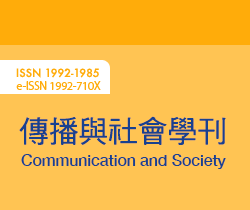 |
| July 2020 |
 |
53 |
|
| 研究論文Research Articles |
| 改革之聲與改革之生:話語形構如何支持國企市場化改革(1995–2000) |
| The Voice of Reform and the Birth of Reform: How Did the Discursive Formation Support the SOE Reform (1995–2000) |
|
|
|
 |
 (2773)
(2773)
|
| 作者 |
陳鵬 |
| Author |
Peng CHEN |
| 關鍵詞 |
政黨國家、話語形構、意識形態調適、國企改革 |
| Keywords |
party state, discursive formation, adaptation of ideology, SOE reform |
| 摘要 |
上世紀70年代以來,新自由主義浪潮席捲全球,中國的市場化改革也被裹挾進這一浪潮中,並成為國家轉型的重要一環。這一過程尤其體現在上世紀末國有企業改革中,改革帶來了諸多層面的意義錯位,面對這種斷裂,改革的一個重要面向是,如何合理化這一進程,並為市場化改革創造合乎需要的觀念。本文從話語的社會理論出發,研究將《人民日報》視為政黨國家的話語文本,通過引入福柯的主體性概念對政黨機關報的相關報道進行建構性話語分析,解釋了這一話語實踐過程。基本發現是《人民日報》在推進國家主導的市場經濟話語建構中,部分表述與新自由主義相契合,這些話語將政府主體性建構為去包辦關係,減少干預;將國企主體性建構為自我負責,勇於擁抱市場;將工人主體性建構為不依賴國家,自我承擔。黨報話語建構出一個與市場匹配的框架,其他媒體言說加入其中,最終彙集成支持市場化改革的話語形構。在新自由主義式的話語不斷塑造意識形態的過程中,市場經濟觀念取代計劃經濟觀念,最終成為主流意識形態的核心之一,意識形態由此調適出新的內涵並支持國家轉型。 |
| Abstract |
Since the 1970s, neoliberalism has dominated the world. China’s marketoriented reforms as part of the country’s transition have also been involved in this wave. This study focuses on the state-owned enterprise (SOE) reform in China from 1995 to 2000. The reform of SOEs brought the dislocation, which the party state had to deal with. The party state had to find ways to explain the
reform, make it fit the rule, provide rationalities, and create acceptable ideas for these market-oriented reforms. The study tried to understand this process by examining the relevant reports on SOE reforms in the People’s Daily between 1995 and 2000. By using the concept of subjectivity and constructive discourse analysis to analyze the discourse in the People’s Daily, this paper concludes that the People’s Daily constructed the subjectivity of neoliberalism through discourse formation. The main finding is that during the discourse construction of the market reform led by the party state in the late 1990s, parts of the statements of the People’s Daily were compatible with neoliberalism. The government was described as avoiding intervention, and the SOEs were described as embracing the market, while the workers were described as being responsible for themselves. This shows that the party’s newspaper did not resist neoliberalism. Instead, it constructed a framework that matched it. Other mediajoined it, and eventually, there was a discourse formation that supported the market orientation reform. During the reconstruction and reproduction of the discourse on neoliberal subjectivity, the ideology of a planned economy was dropped and that of the market was set as the core. This adaptation of ideology supported the state transformation in the late 1990s.
本文引用格式﹕
陳鵬(2020)。〈改革之聲與改革之生:話語形構如何支持國企市場化改革(1995–2000)〉。《傳播與社會學刊》,第53期,頁163–189。
Citation of this article:
Chen, P. (2020). The voice of reform and the birth of reform: How did the discursive formation support the SOE reform (1995–2000). Communication & Society, 53, 163–189.
|
|
|
 |
| No.74 2025 October |
 |
| No.73 2025 July |
 |
| No.72 2025 April |
 |
| No.71 2025 January |
 |
| No.70 2024 October |
|
